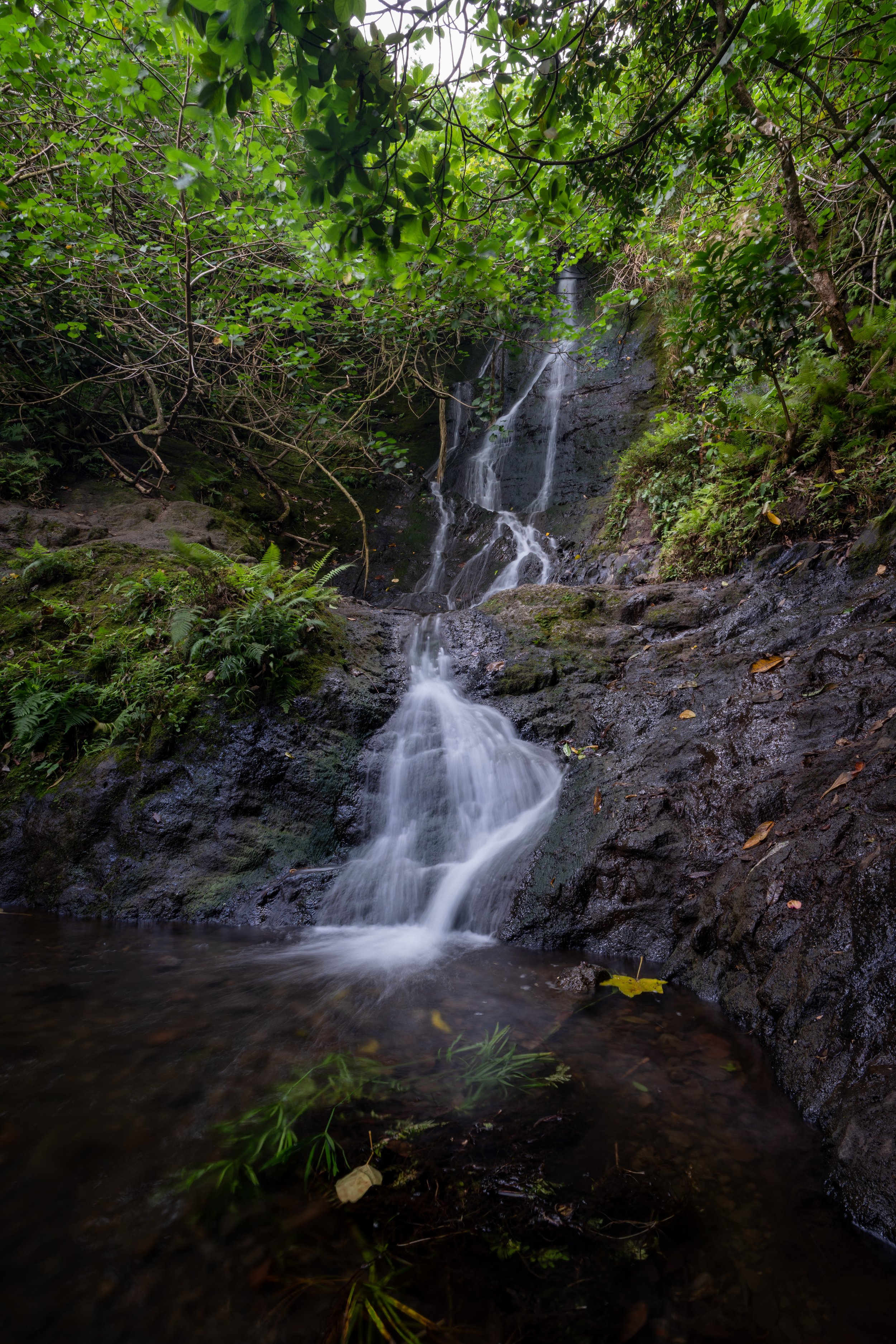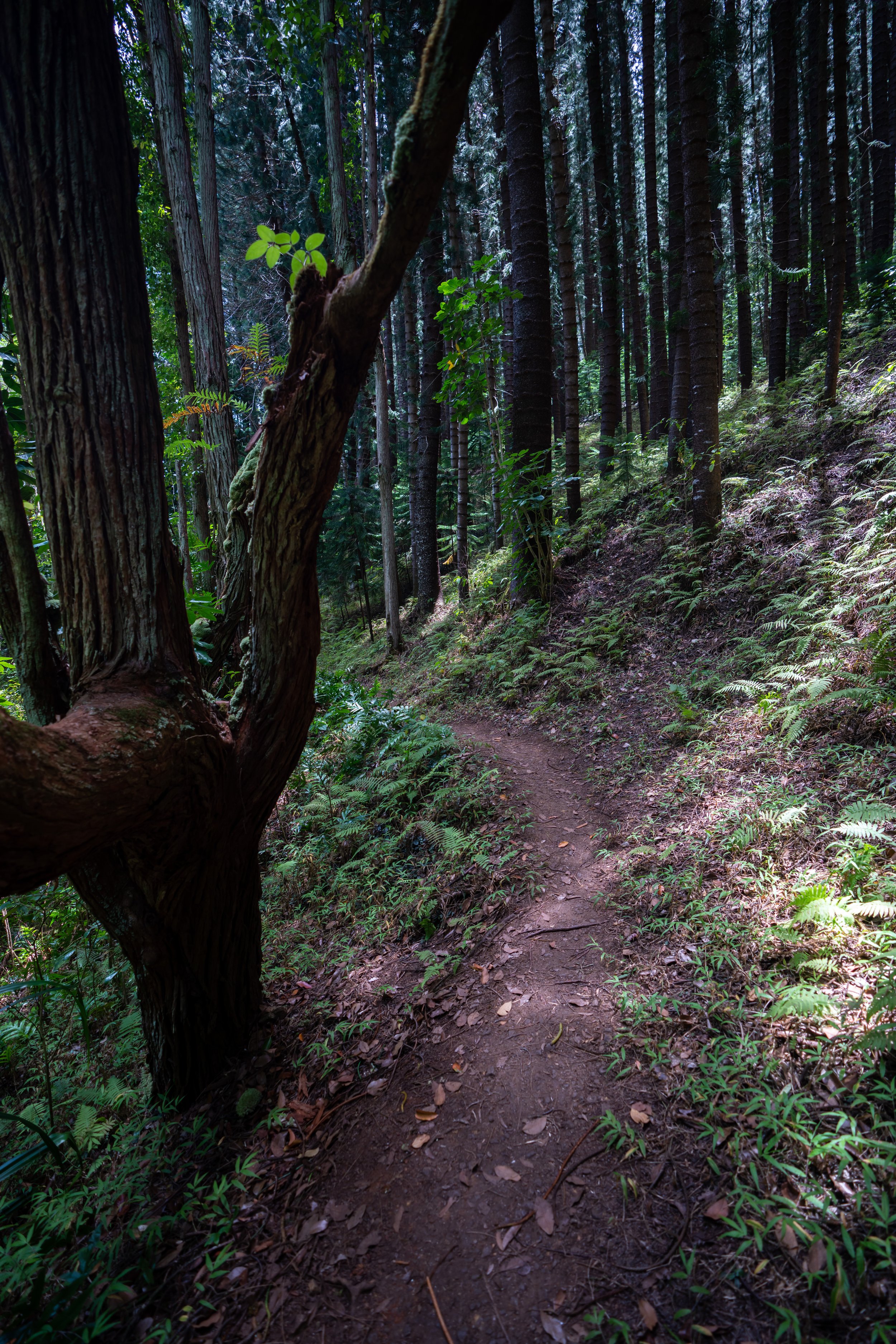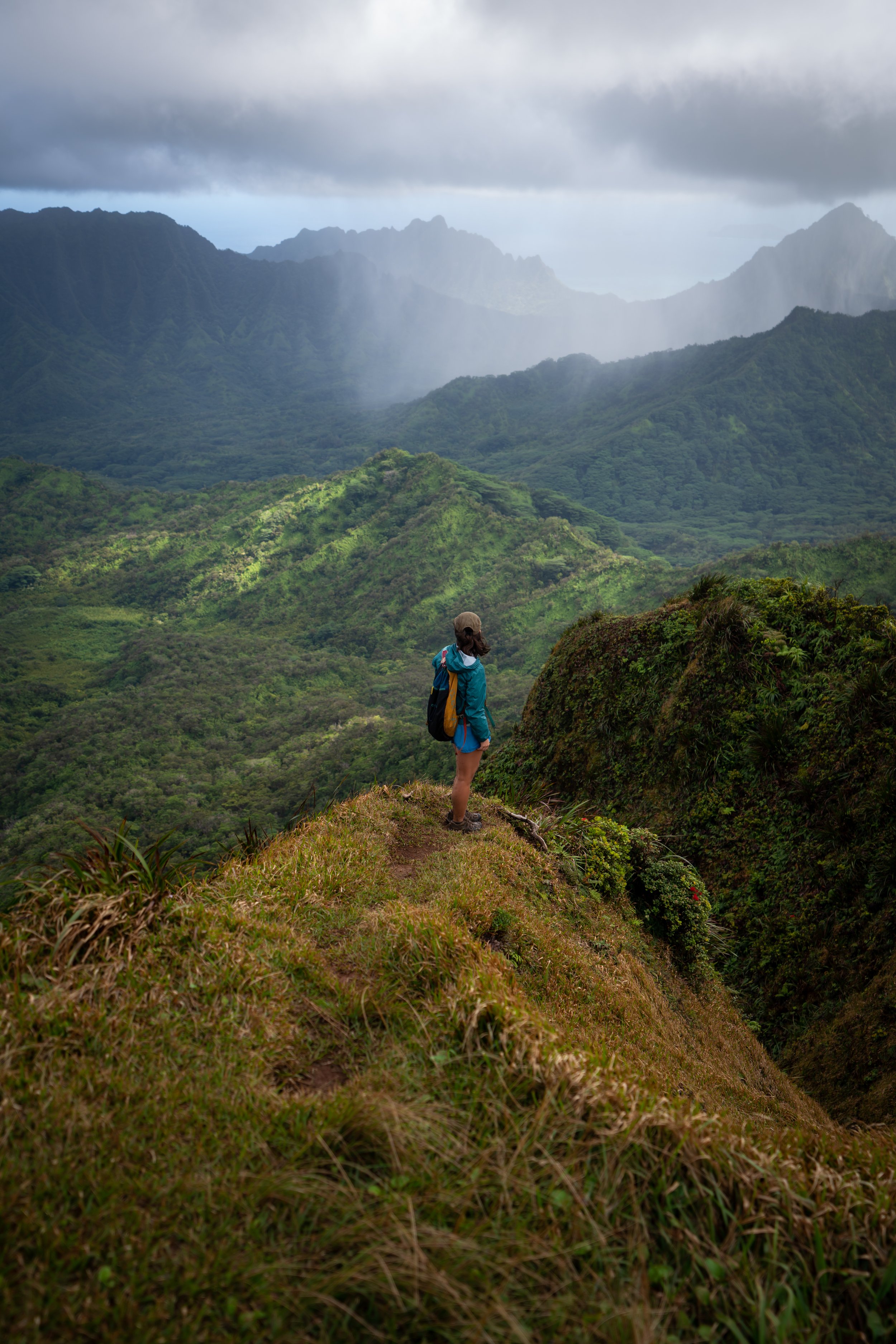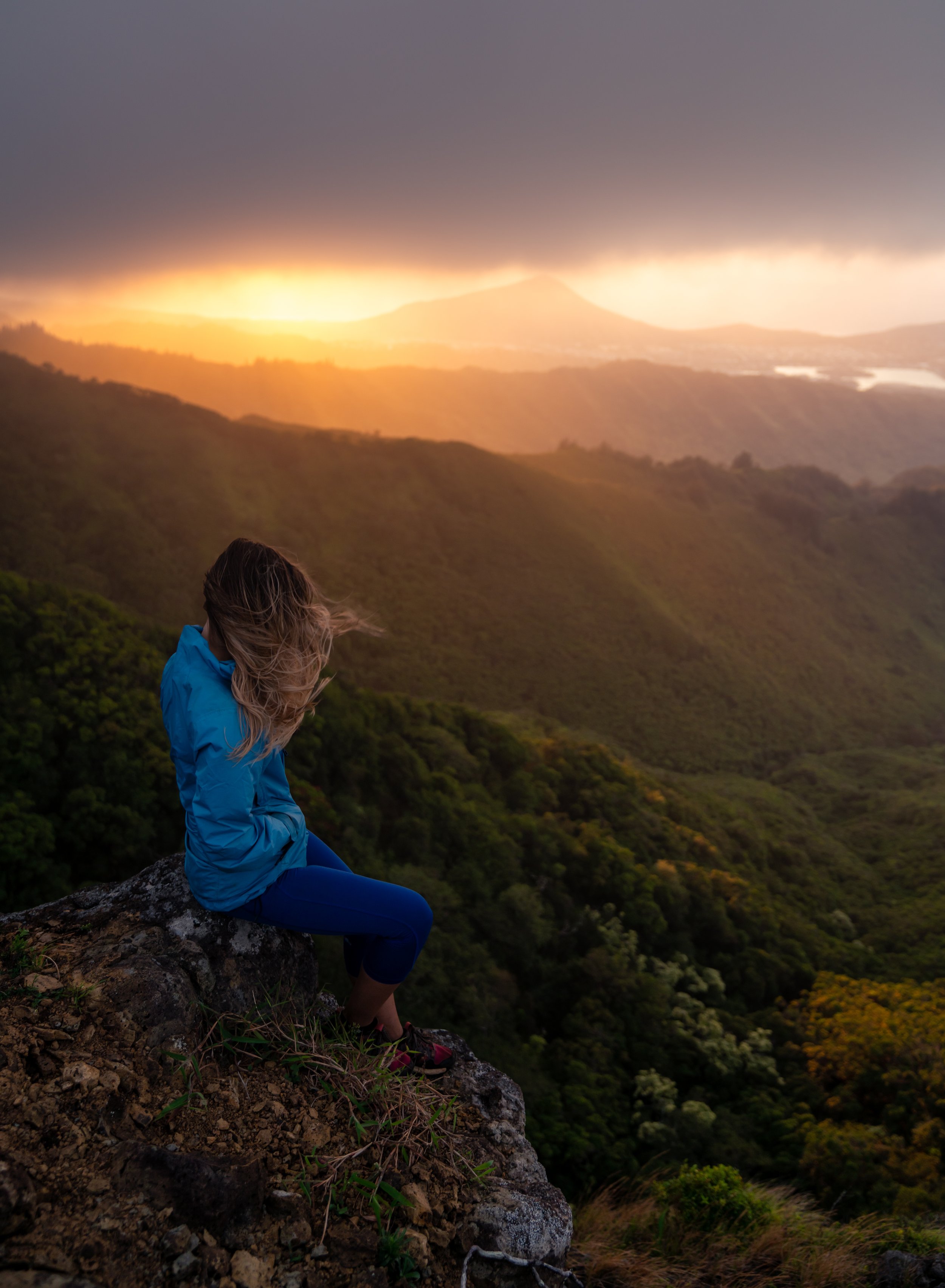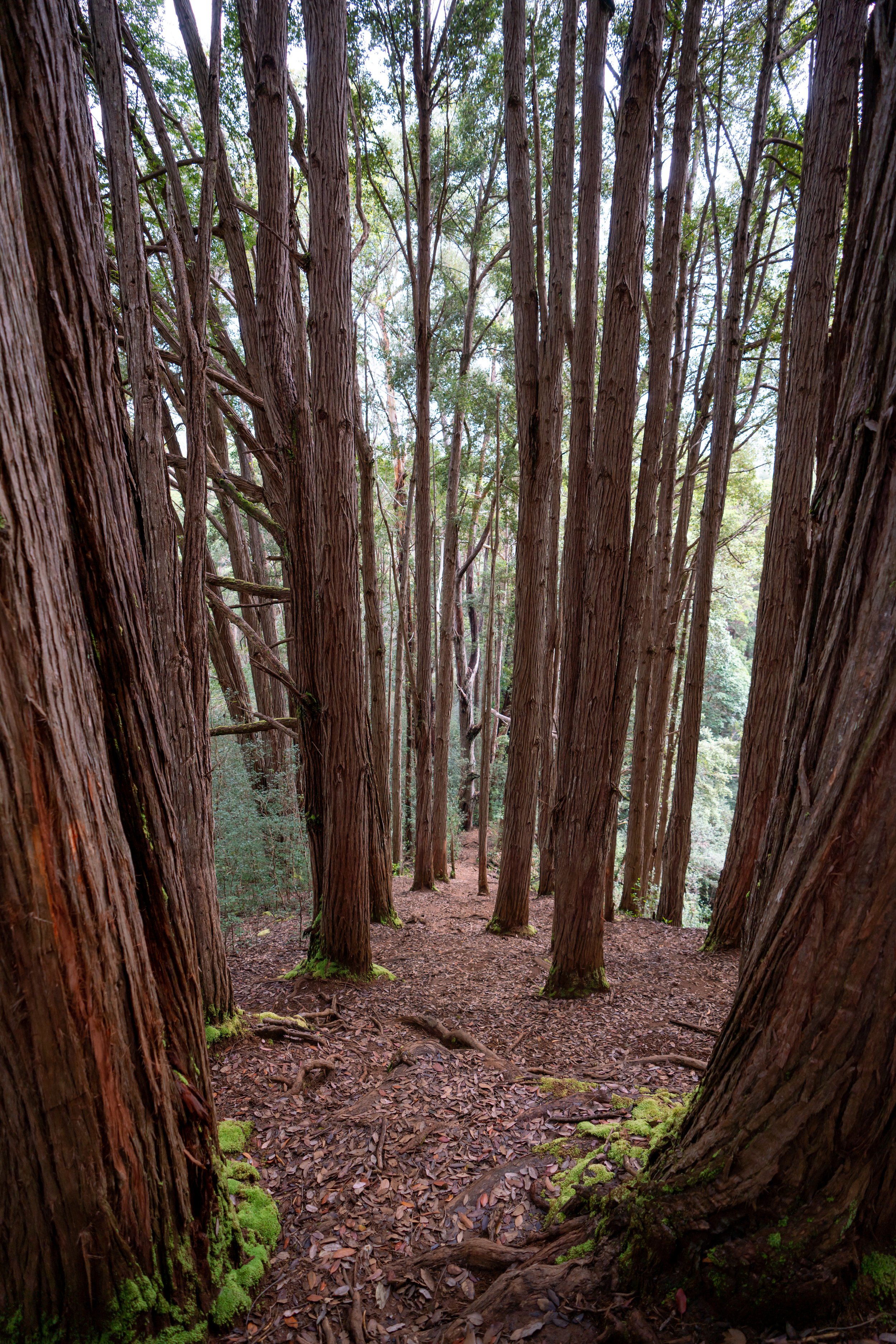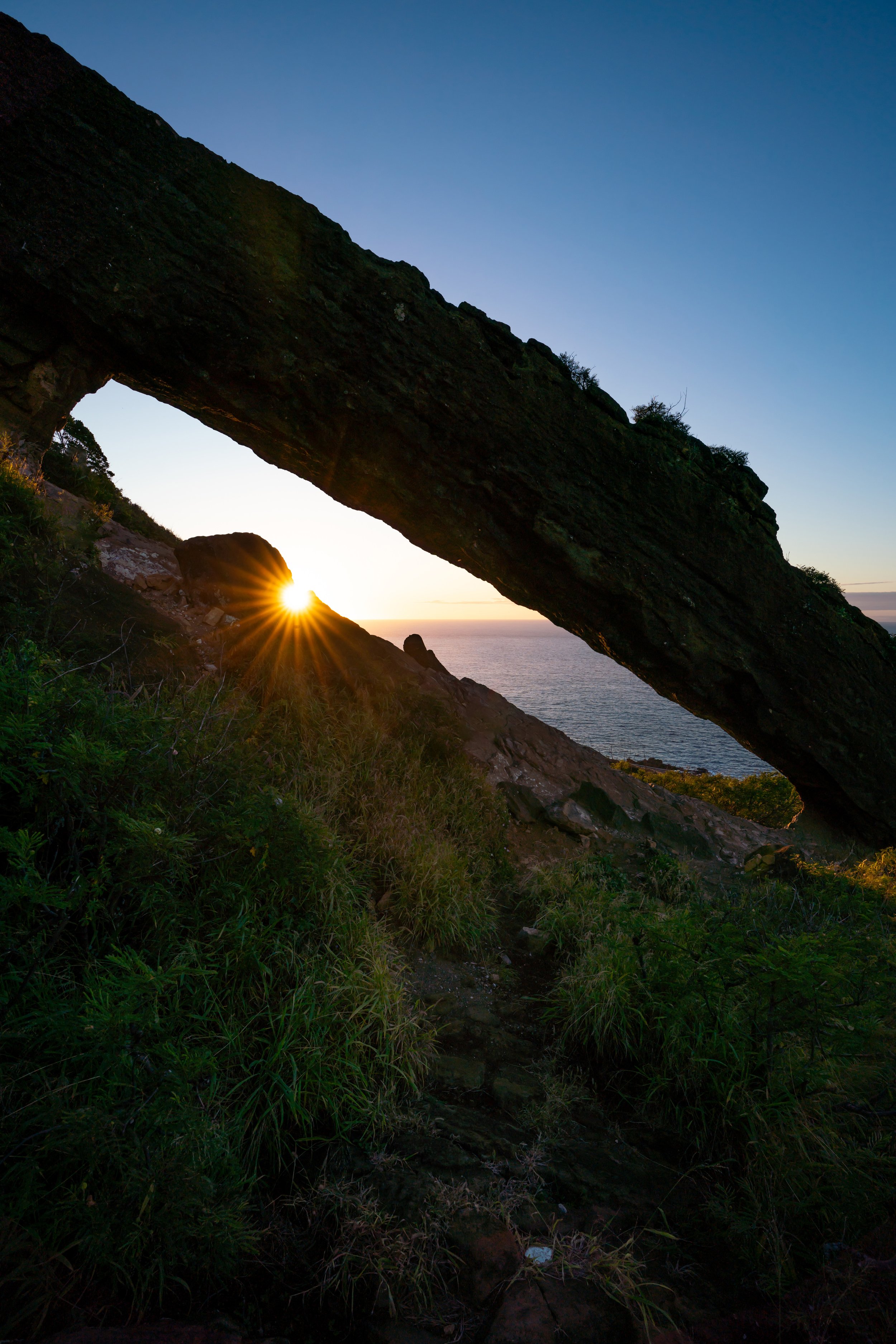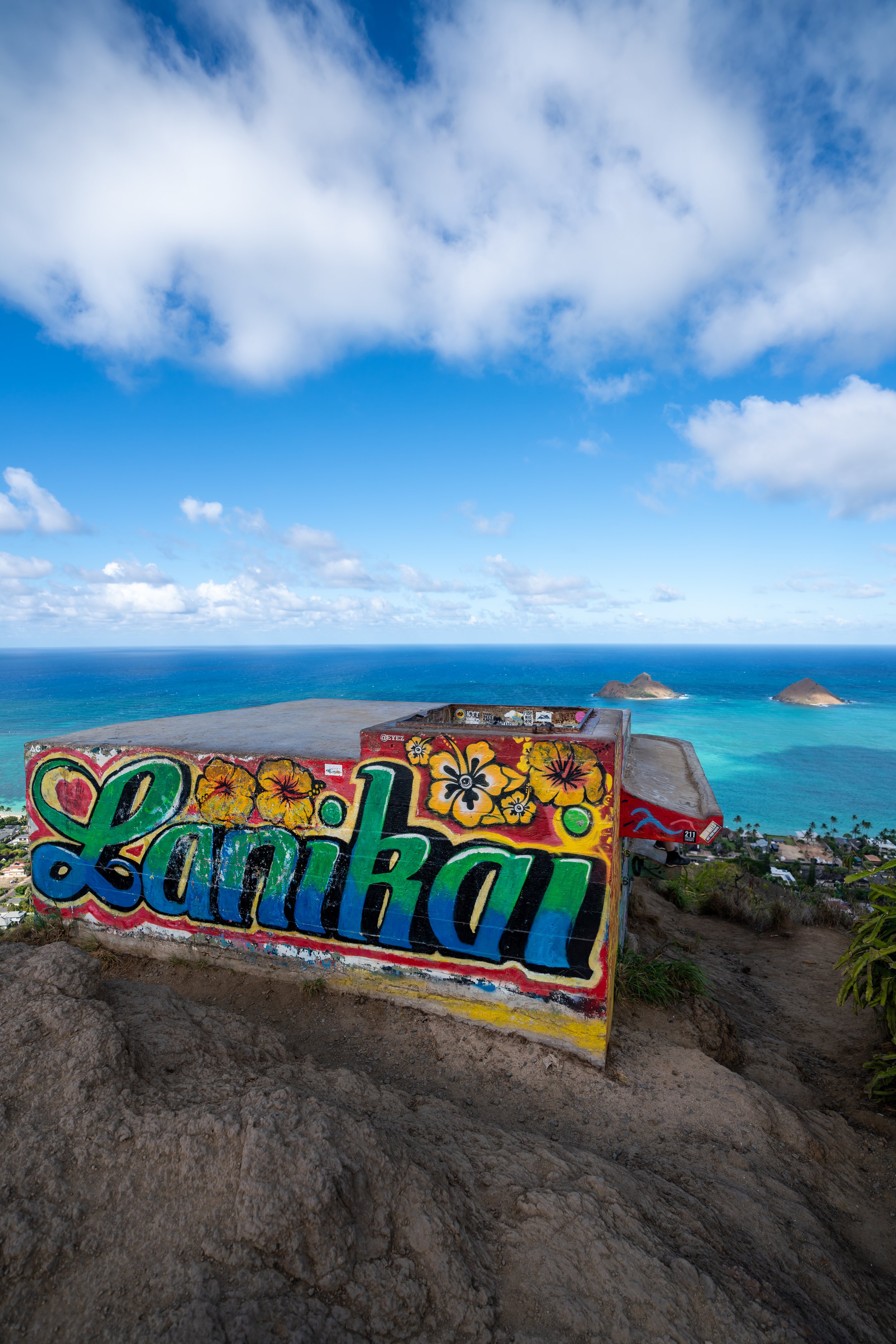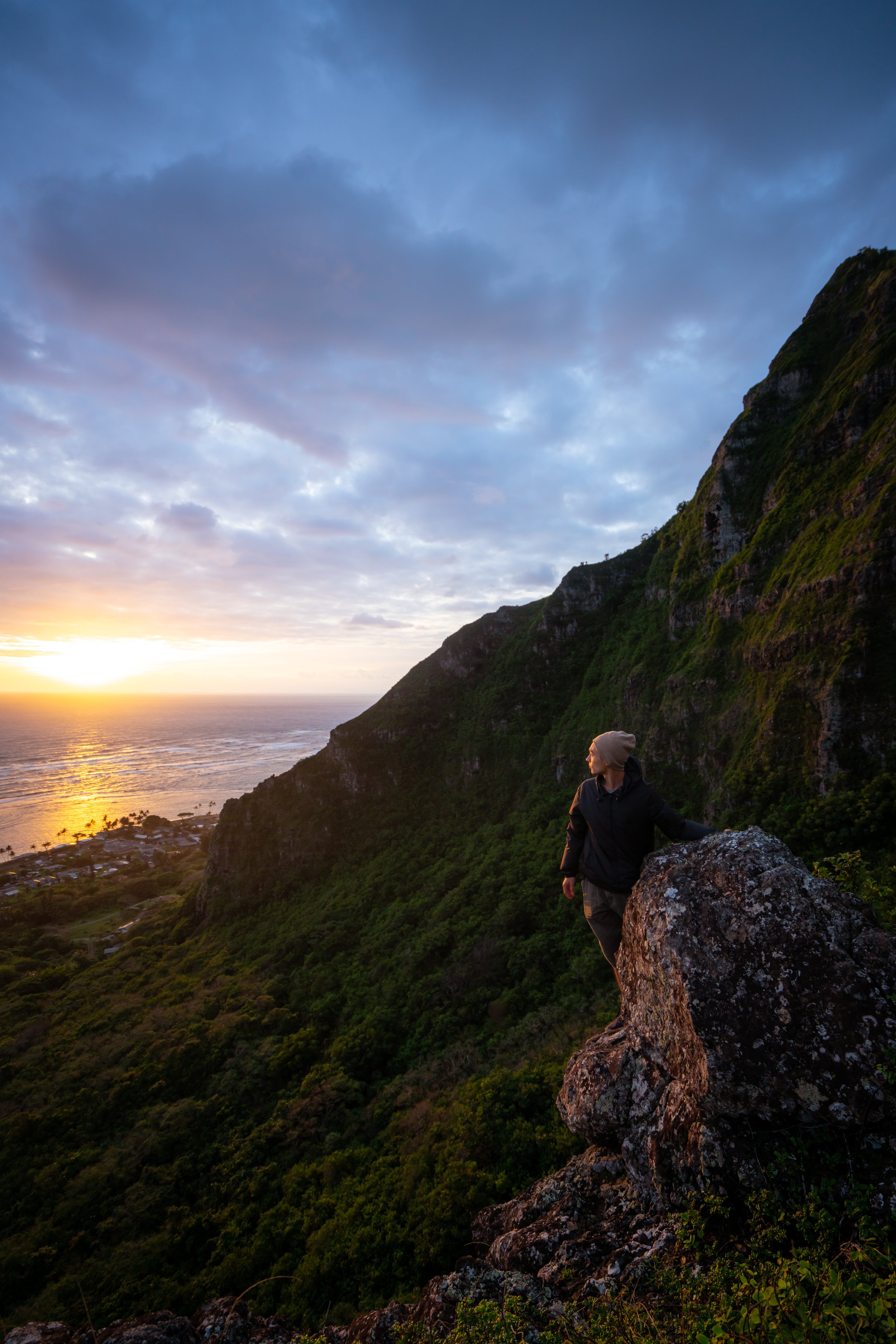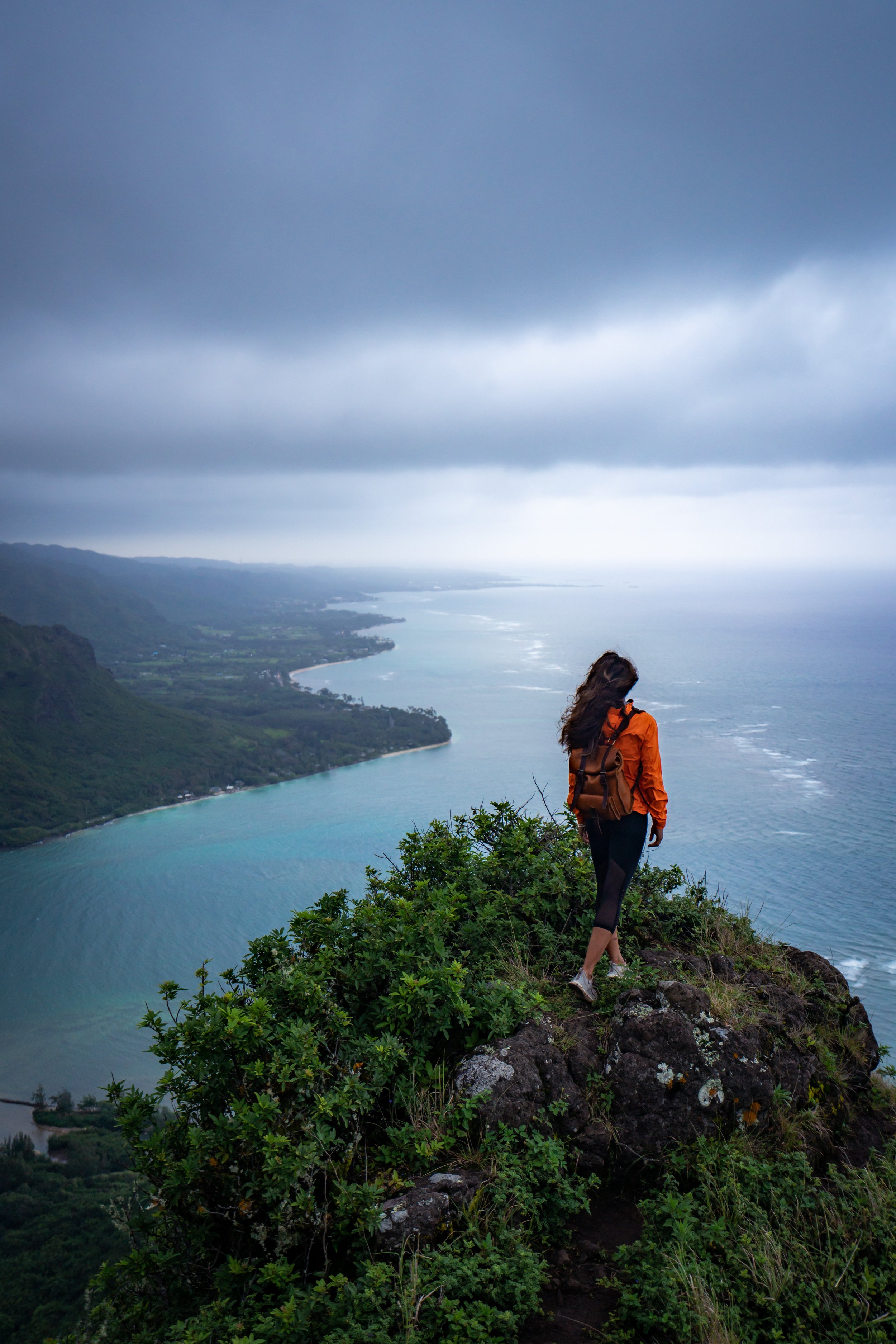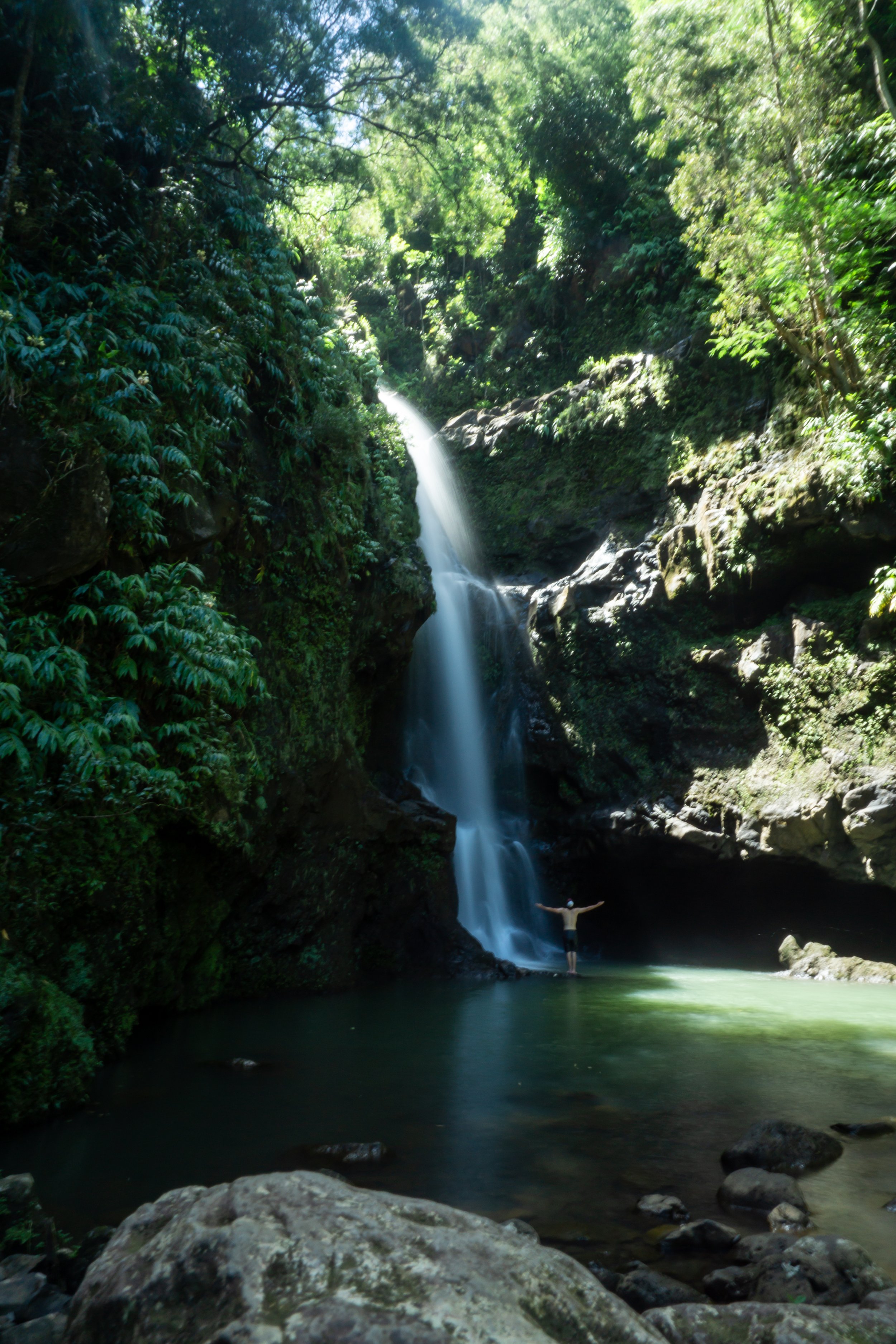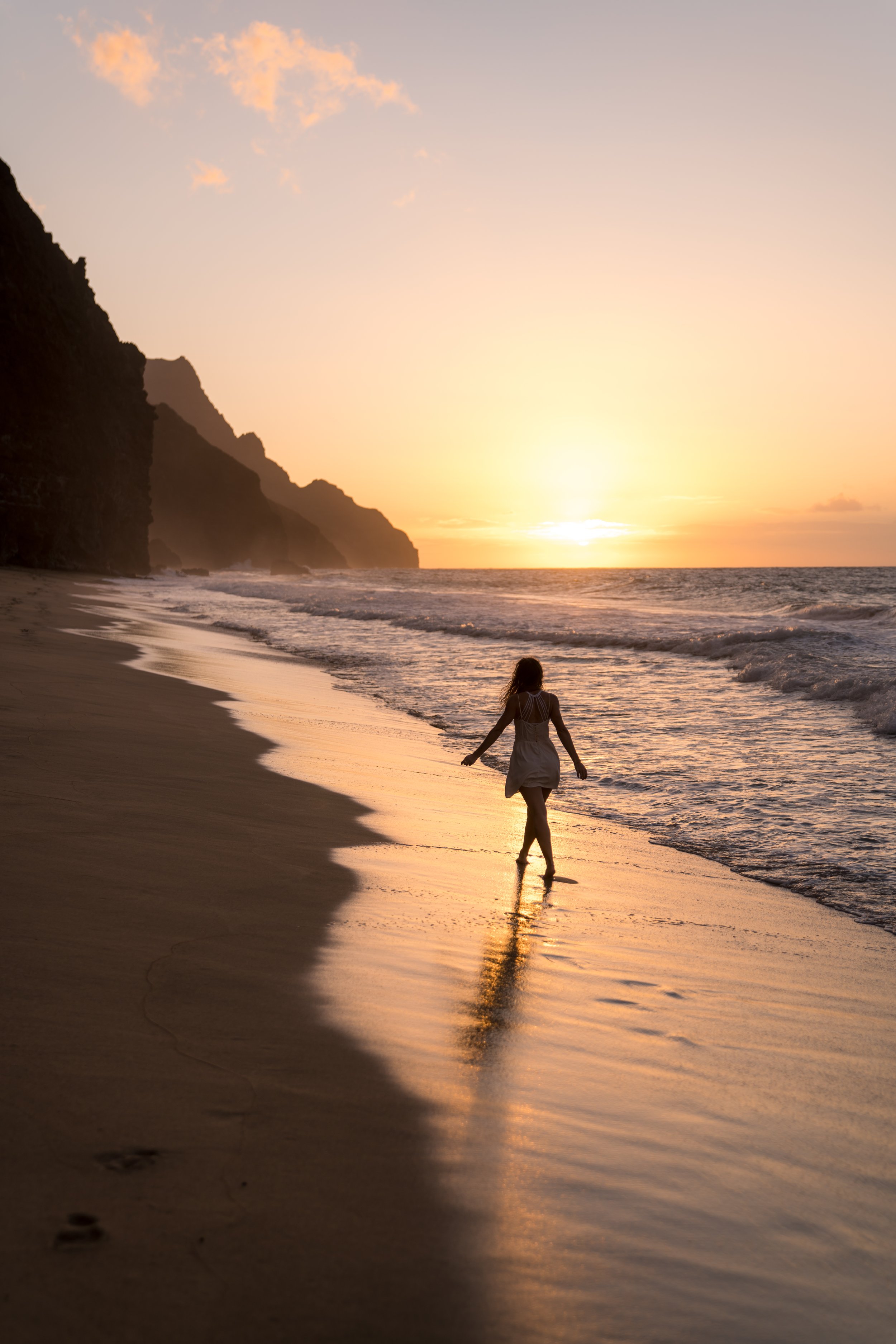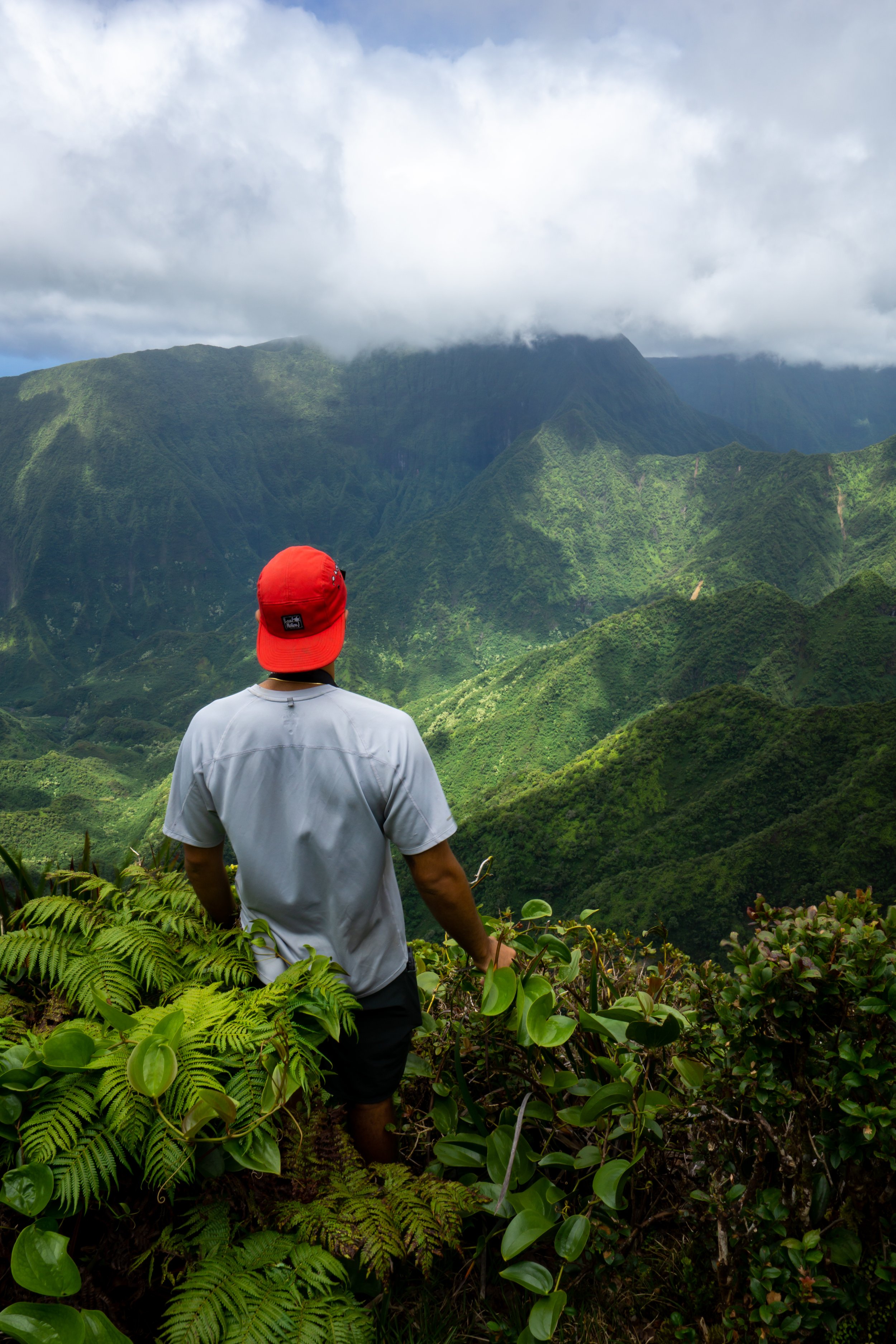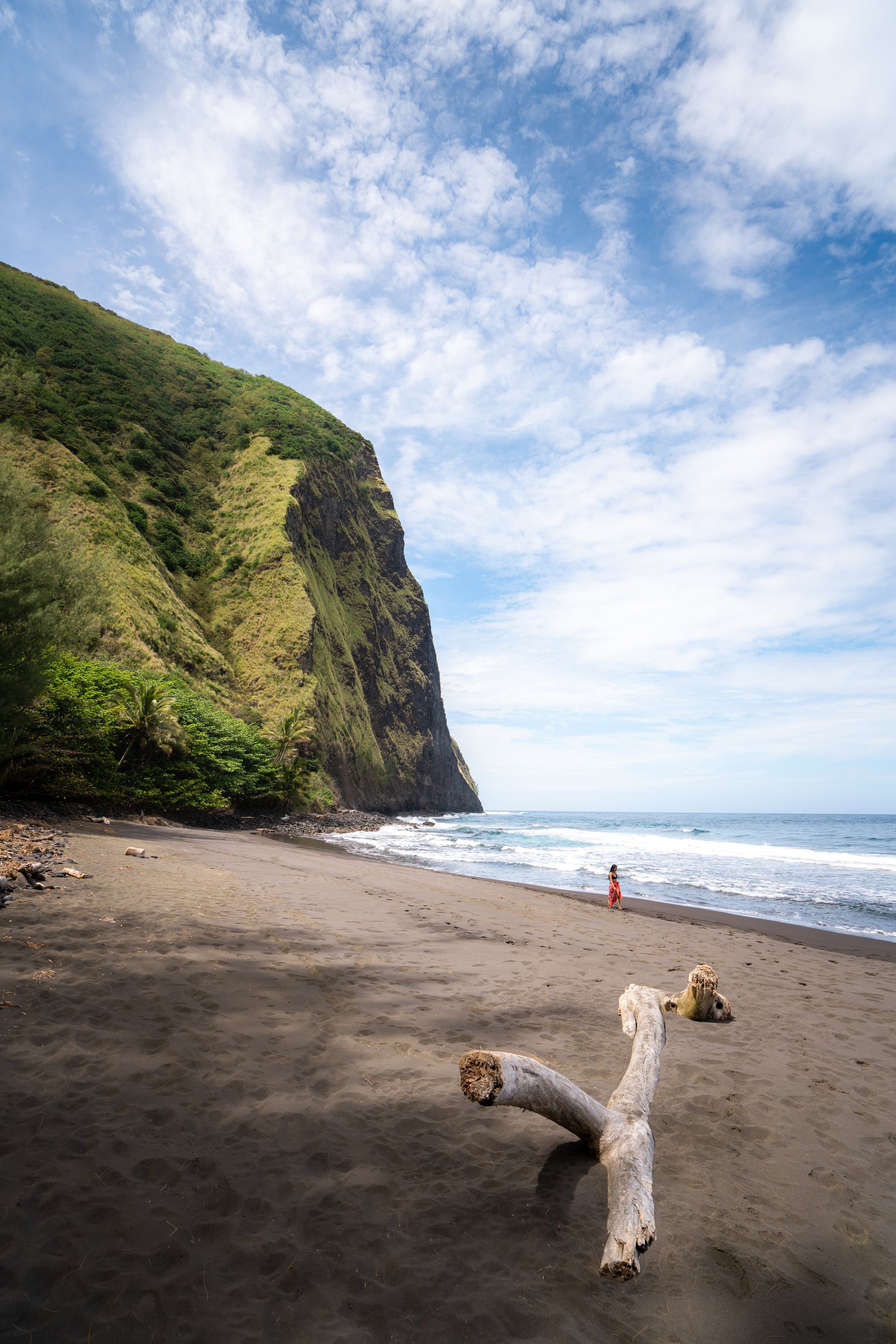Hiking the Kapaʻeleʻele Trail on Oʻahu, Hawaiʻi
Distance: 1.2 miles / 1.9 km
The Kapaʻeleʻele Trail in Kahana Valley on the east side of Oʻahu is a little-known historic trail below Puʻu Piei that often gets overshadowed by other, more popular day hikes in the area, like the Crouching Lion Trail and Puʻu ʻŌhulehule.
By this, I mean that the relatively short 1.2-mile (1.9 km) loop that parallels Kamehameha Highway is rarely hiked compared to its nearby neighbors, and when it is, it’s often used as an access trail for one of a few different routes up Puʻu Piei.
That said, the Kapaʻeleʻele Trail, on its own, can be a great, easy adventure for those looking to explore a quiet little corner of the island, which is best enjoyed at Keaniani Kilo because of the beautiful views above Kahana Bay.
Kapaʻeleʻele Trailhead Parking
Parking for the Kapaʻeleʻele Trail is located at the Orientation Center within Ahupuaʻa ʻO Kahana State Park.
Google Maps Directions: Kapaʻeleʻele Trailhead
My Hawaiʻi Hiking Checklist
Osprey 3L Water Bladder - The Osprey 3L water bladder is the most universal hiking and backpacking water bladder on the market, and it’s my go-to because of the slide-off seal that allows it to be quickly filled from the top. Additionally, individual parts are easily replaceable, such as the bite valve.
Blister / Heel Protectors - I swear by these cheap, amazing heel protectors to prevent blisters for nearly every kind of hiking and backpacking that I do!
Black Diamond Headlamp - Personally, I recommend the Black Diamond Storm because it is one of the brightest, lightest, and longest-lasting headlamps on the market—and trust me, the weight-to-battery-life ratio really does matter!
Hiking / Trail Running Shoes - Depending on the type of trail, I prefer to use either the Keen Targhee for longer, more rugged hiking or the HOKA Zinal Trail-Running Shoe for lighter, less intense trails. In either case, both have been amazing to me for many years across countless environments, and both can be found in men’s and women’s sizes. - (Men’s Keen / Women’s Keen) (Men’s HOKA / Women’s HOKA)
Waterproof Rain Shell - You never know when it may rain, and I’ve learned over the years that a rain shell is far better than a rain jacket. By this, I mean that it’s best to have something that the water will roll right off of, which is why I recommend the Patagonia Torrentshell 3L available in both men’s and women’s sizes.
High SPF Sunscreen - Packing high-SPF sunscreen is a must for long days outside!
Hiking the Kapaʻeleʻele Trail
From the Orientation Center, look for the Kapaʻeleʻele Trail sign.
Kapaʻeleʻele begins down this dirt road where the trailhead is marked shortly ahead.
Stay on the main path heading straight (left).
At about 0.2 miles (0.3 km), the Kapaʻeleʻele Trailhead is marked before it heads uphill around Kahana Bay.
If it has rained recently, the Kapaʻeleʻele Trail may be one of the muddiest hikes on the island.
Go right at this split to stay on the Kapaʻeleʻele Trail.
Keaniani Kilo
There is a lot of confusion surrounding the map posted by the DLNR and the location of Keaniani Kilo, which is supposed to be a lookout over Kahana Bay.
All I can say is that the lookout in the photo below is the only lookout on the entire trail. The map shows that Keaniani Kilo is located past Kapaʻeleʻele Koʻa, but it may be a historic lookout that is no longer there because of all the non-native trees blocking the view.
That’s why I’m calling this Keaniani Kilo. There is no other lookout where the map says that there is ahead.
Kapaʻeleʻele Koʻa
The Kapaʻeleʻele Koʻa shrine is the most well-marked historic site on the trail.
Please do not disturb.
This split in the photo below is where the map says that Keaniani Kilo is located.
However, I followed the trail up the ridge for quite a ways and didn’t find anything like the Kapaʻeleʻele Koʻa shrine. To that point, other people on various sites have said the same.
Kapaʻeleʻele Koʻa may have been located up the ridge historically, but there’s nothing to find today.
Kila Ridge Junction (Puʻu Piei)
However, the junction is the turn for Kila Ridge up to the most difficult part of Puʻu Piei.
If you’re curious to know more, I have written a separate post about the North and Middle Ridges on Puʻu Piei, including some information about the dramatic Piei Makai Ridge to the summit.
Read My Separate Post: Puʻu Piei Trail
These final switchbacks down to Kamehameha Highway may be one of the muddiest spots on the entire trail.
This is the official Kapʻeleʻele Trailhead/ exit, but it’s surprisingly not marked in any way.
Additionally, even the DLNR website says that the route back to the start is along the side of Kamehameha Highway, but it seems a little dangerous to me.
Perhaps they should build a path to keep hikers away from the traffic.
Native Plants on the Kapaʻeleʻele Trail
Kapaʻeleʻele is a very low-elevation trail for Hawaiʻi, meaning that the hike is dominated by non-native/ invasive plants like Octopus trees and Shoe Button.
However, in select spots, I was able to find ʻĀkia on the trail.
If you would like to learn more about native plants in Hawaiʻi, check out my separate post about our beautiful native species from across the islands.
Read My Separate Post: Native Hawaiian Plant Guide
More Oʻahu Adventures
If you’re interested in reading about some more amazing Oʻahu adventures, check out my separate posts below!
Best Hotels & Restaurants in Waikīkī
If you’re trying to decided where to stay on Oʻahu, check out my top 10 list for the best resorts and restaurants in Waikīkī.
I break down what makes one hotel a better choice over another, so that you can find the best fit for your stay on the island.
Read My Separate Post: Best Waikīkī Hotels & Restaurants
HNL Airport-Hotel Shuttle
Prices on ride-share apps like Uber/ Lyft cannot beat the price of booking your hotel shuttle prior to arrival. I say this because there are additional fees for ride-share airport pick-ups at Honolulu Airport (HNL), which is why I recommend booking your transportation in advance using the options below.
Additionally, the last option below will go as far as the Ko ʻOlina Resorts on the West Side and Turtle Bay on Oʻahu’s North Shore!
Best Way to Book Rental Cars!
I travel quite a bit, and I know firsthand that finding a good rental car deal can be a challenge, but that’s why I recommend comparing all of your options with Discover Cars.
In short, Discover Cars is a well-known, reputable business that allows you to search for the best deal across companies, and they have the best full-refund cancellation policy I’ve ever seen, valid up to 72, or sometimes even 48, hours prior to your reservation!
Book Here: Discover Cars
Visiting Other Islands
If you are visiting Oʻahu or heading to another island, check out some of my personal recommendations for Oʻahu, Maui, Kauaʻi, Molokai, Lānaʻi, and Hawaiʻi Island (Big Island) in these separate posts.
If you’re trying to decide which island is right for your visit, check out my overview about each island in the post below.
Read My Separate Post: What is the Best Hawaiian Island to Visit?
What is the Best Time of Year to Visit Hawaiʻi?
The weather in Hawaiʻi can often appear to be warm and beautiful throughout the year, but in my experience, there is a lot more to consider when planning what time of year to visit the islands, such as what island you are considering, what sides of each island do you plan to stay, what activities are you most interested in, the wildlife, and countless other nuanced variables that can all impact the type of trip you can expect to have.
For these reasons, I highly recommend reading through my separate article to not only understand my thoughts regarding the best time of year to come to Hawaiʻi but also what you need to consider based on the time of year that you plan to visit.
Read My Separate Post: What is the Best Time of Year to Visit Hawaiʻi?
10 Best Tours & Excursions on Oʻahu
There are a lot of different tour options to choose from on Oʻahu, but to make it easier to decide, I made a list of my favorite tours because some things simply are better with a local guide!
Read My Separate Post: Best Tours on Oʻahu
Safety
All hikes in Hawaiʻi should not be compared to trails outside of the islands, and hikers should exercise due caution on every adventure, given that many are extremely dangerous.
By this, I mean that Hawaiʻi is known for hot, humid weather, steep, dramatic, and unstable cliffs, and flash floods, which can occur without warning. Therefore, it is important that you check the local forecast, understand the physical condition of your entire group, and pack sufficient food and water before attempting any adventure.
Disclaimer
All information provided on this blog is for informational purposes only and is not intended to be a substitute for information or advice from qualified professionals or managing agencies.
Noah Lang Photography LLC makes no representations or warranties regarding the accuracy or completeness of the information provided here, and readers should use their own discretion, judgement, and seek professional advice where it is appropriate.
Furthermore, Noah Lang Photography LLC shall not be held responsible for any injuries, lost individuals, or legal issues arising from the use of information provided on this website, and if applicable, the above safety disclaimer should be referenced to provide a generic overview of the risks involved.
All said, the content on this blog is for the sole use of Noah Lang Photography LLC, and unauthorized use or reproduction of this content is strictly prohibited.
Disclosure
This post is not sponsored.
However, some of the links in this post are affiliate links, which means that I may earn a small commission if a purchase is made through one of those links. This commission comes at no additional cost to you, and I only recommend products that I personally use and believe will add value to my readers. Thank you for your support, which enables me to continue creating more!
To read the full privacy policy, click here.

About This Blog
Noah Lang Photography, also known as @noahawaii, is 100% reader-supported!
I do not accept guest articles or sponsored content of any kind on my blog, which is why, if you enjoy the outdoor and travel content I create, please consider buying me a coffee!
I appreciate your support, which helps me continue to keep this blog alive!










